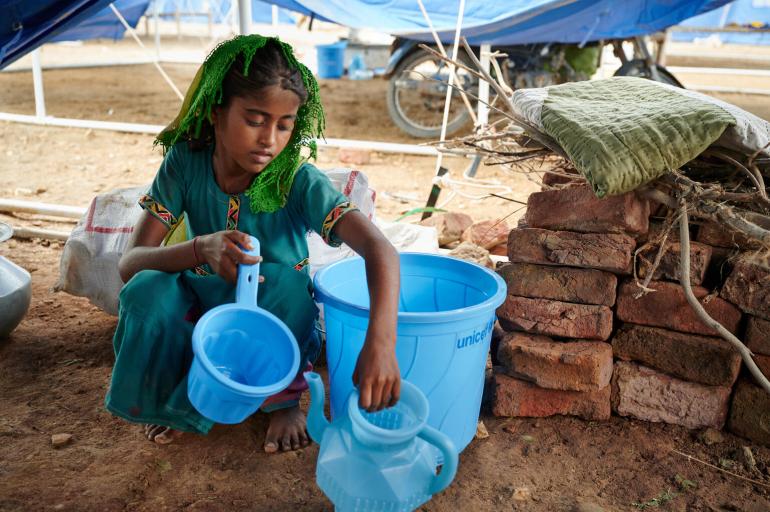A new report by UNICEF and WHO indicates that girls are nearly twice as likely as boys to bear the responsibility of fetching water for households and spend more time doing it each day,
The report Progress on household drinking water, sanitation and hygiene (WASH) 2000-2022: Special focus on gender shows that globally, 1.8 billion people live in households without water supplies on the premises. Women and girls aged 15 and older are primarily responsible for water collection in 7 out of 10 such households, compared with 3 in 10 households for their male peers.
Additionally. It notes girls under 15 representing 7 percent are also more likely than boys under 15 at 4 percent to fetch water.
As a consequence, in most cases, women and girls make longer journeys to collect it, losing time in education, work, and leisure, and putting themselves at risk of physical injury and dangers on the way.
“Every step a girl takes to collect water is a step away from learning, play, and safety,” said Cecilia Sharp, UNICEF Director of WASH and CEED. “Unsafe water, toilets, and handwashing at home robs girls of their potential, compromises their well-being, and perpetuates cycles of poverty. Responding to girls’ needs in the design and implementation of WASH programmes is critical to reaching universal access to water and sanitation and achieving gender equality and empowerment.”
The report which provides the first in-depth analysis of gender inequalities in WASH – also notes that women and girls are more likely to feel unsafe using a toilet outside of the home and disproportionately feel the impact of a lack of hygiene.
For example, recent surveys from 22 countries show that among households with shared toilets, women and girls are more likely than men and boys to feel unsafe walking alone at night and face sexual harassment and other safety risks.
Furthermore, inadequate WASH services increase health risks for women and girls and limit their ability to safely and privately manage their periods. Among 51 countries with available data, women and adolescent girls in the poorest households and those with disabilities are the most likely to lack a private place to wash and change.
The findings go on to show that a lack of access to hygiene also disproportionately affects women and girls. In many countries, women and girls are primarily responsible for domestic chores and caring for others – including cleaning, preparing food, and looking after the sick – which likely exposes them to diseases and other risks to their health without the protection of handwashing.
Additional time spent on domestic chores can also limit girls’ chances of completing secondary school and gaining employment the report found.

